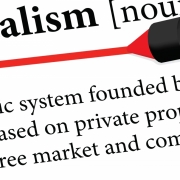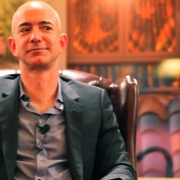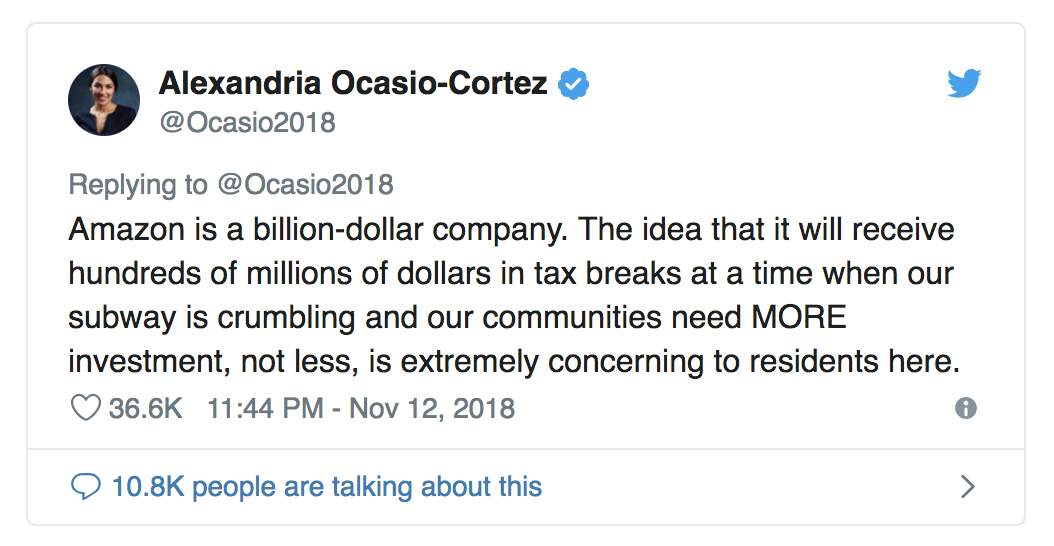The Four Ways Capitalism Makes Us All Better People.
The left wants young people to believe that free market capitalism is an exploitative and corrupting system. This despite the fact that capitalism has dramatically and universally raised living standards for the economic citizens of developed countries. Today, everyone enjoys comforts and conveniences that are far more elevated than the life of kings in the past. Pshaw! says the left. Comfort is beside the point. Capitalism makes us bad people: winners and losers, exploiters and exploited in a moral war of all against all.
That argument is 400 years old, articulated by Thomas Hobbes, who got his politics right (the political class has always been immoral and exploitative and still is) but his economics wrong. We look to Adam Smith for the right economic perspective, which he achieved by combining interpersonal morality and economic self-interest, an insightful synthesis that the left still doesn’t understand, and never will. Smith shows us how capitalism ennobles human nature and makes us better people.
His starting point is that people are innately collaborative. He uses the word “sympathy” to describe the common understanding we all have of each other’s needs and wants, and the sensitivity we feel to others’ successes and disappointments. The first line of The Theory Of Moral Sentiments, although expressed in 18th Century language that sounds strange to our ears, is mind-opening:
How selfish soever man may be supposed, there are evidently some principles in his nature, which interest him in the fortunes of others, and render their happiness necessary to him, though he derives nothing from it, except the pleasure of seeing it.
He recognizes the cynicism of the left (“How selfish soever man may be supposed”) and substitutes the happier perspective of empathy.
From the foundation of natural empathy, Smith builds, in Theory of Moral Sentiments and his later work, Wealth Of Nations, a system of moral capitalism that improves not just standards of living, but also the quality of life. There are four pillars to his argument that capitalism ennobles our nature:
- Empathy develops a social conscience – what Smith calls “the impartial spectator, a guardian of correct individual behavior – within each of us, and capitalism universalizes the impartial spectator in the structure of the market.
- Capitalism simultaneously develops self-command and humanity within us.
- Capitalism nurtures virtue in people, and Smith provides plenty of examples.
- Capitalism develops a set of general rules of conduct – the kind that F.A. Hayek later called for us all to focus on – that lead to moral activity.
Smith’s capitalism is a society of entrepreneurship, non-violence, voluntary exchange, limited government, collaboration, interconnectedness and spontaneous order. It rests on just property rights and the right to be free from aggression by other people, including other people in the guise of government. It is a society of contract, because the right of ownership includes the right to exchange, and the free market system is the sum total of all voluntary, and therefore mutually beneficial, exchanges. The only way to get ahead is by economic means: production and exchange in accordance with the needs of other people. The more value other people place on an individual’s productive activity, the greater that individual’s monetary gain. This income allows him or her to expand production and co-operate with more people in exchange. Individuals earn higher income when they are more productive to others. In capitalism, wealth is created and, once in existence, it is channeled into more of the activities that are most highly valued by society.
The opposite society, according to Smith, is the society of status. In such a society, all people are not extended equal rights. Some – including those who call themselves the State or the Government – are given superior rights, leaving all others with inferior rights. The former gain wealth by the political means.
How does capitalism produce a society of empathy, humanity and virtue? Smith explains the concept of the impartial spectator to guide us.
The impartial spectator is the creature of the entrepreneur’s greatest attribute: what Smith calls sympathy and we call empathy – the sense of fellow-feeling that gives us the ability to understand, share and respond to the needs of others. It’s a kind of imagined switching of roles. We put ourselves in the other’s case, as Smith phrases it. This sympathy has its greatest strength when it is mutual. It forms bonds between people. It gives rise to virtuous actions. It promotes the “harmony of society”.
Each of us has an impartial spectator inside. This spectator does the role-switching for us, and guides us to gain the voluntary co-operation of the other party with whom we are exchanging. Buyers and sellers come together on an agreed exchange at an agreed price such that each feels a benefit, and each feels good that the other has benefited.
The market is the sum of all participants’ evaluation of all others’ activities. It is the external impartial spectator – not the one that’s inside each one of us, but a summation 0f the empathy in all economic exchanges. The market guides us all, impartially, to the right behavior. Any intervention in this impartial guidance – by governments for example – produces disorder and prevents the impartial spectator from developing.
The impartial spectator, both internal and external, results in what Smith called “amiable virtues” such as self-command and humanity. Empathy gives rise to:
“that great discipline….: a regard to the sentiments of the real or supposed spectator of our conduct.”
Those engaged in business, says Smith, “never dare to forget for one moment the judgment which the impartial spectator would pass upon his sentiments and conduct”.
Capitalism provides the environment necessary for the development of the empathic virtues. These virtues are unique to capitalism: the system where an individual can further his or her goals by furthering the goals of others. Each exchange in the system of free voluntary markets gives benefit to both parties. The individual engaged in exchange must exercise the self-command that results in trust and respect, to enable exchange to continue into the future. Kindness is a mutual advantage, so capitalism tends to spread beneficence. Capitalism develops virtue. Virtue produces prosperity. Wealth goes to the virtuous, and others, aspiring to wealth, follow the virtuous example of the capitalist.
To read more, see this paper by Dr. Jeffery Herbener, Chairman of the Economics Department at Grove City College: An Integration of The Wealth of Nations with The Theory of Moral Sentiments.














